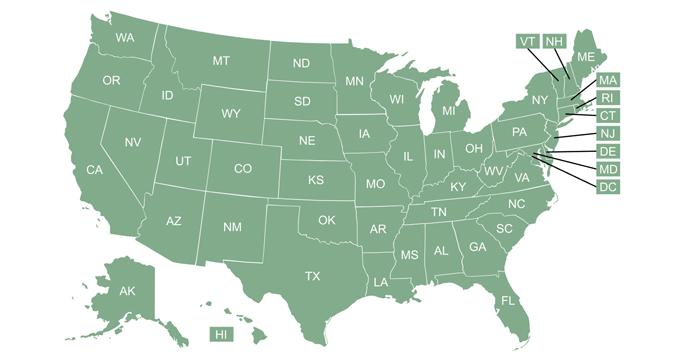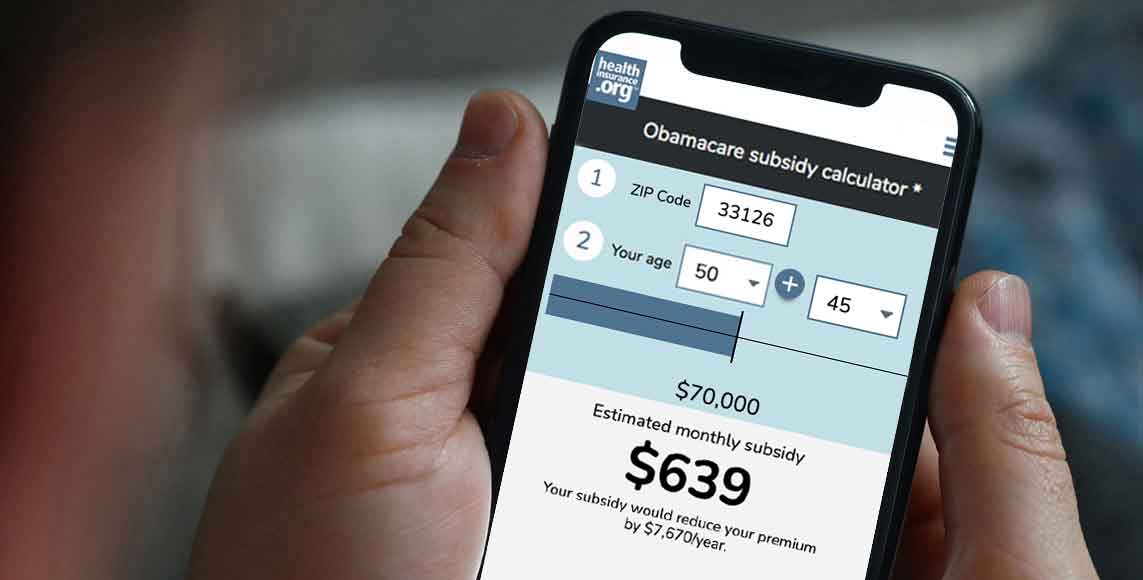
In this edition
- Special enrollment periods underway (or soon to be underway) in most states
- House, Senate legislation would make ACA premium subsidies more generous
- Maryland legislation would create young-adult subsidy pilot program
- Minnesota legislation calls for transition to HealthCare.gov
- Minnesota bill would require more robust coverage of outpatient mental health treatment
- Washington legislation would create state-based premium subsidies
- Mississippi and Kentucky consider extension of postpartum Medicaid coverage
- Montana legislative committee advances bill to prohibit abortion coverage for on-exchange plans
- More states consider bills that would cap out-of-pocket costs for insulin
Special enrollment periods underway (or soon to be underway) in most states
Last week, the Biden administration announced a special enrollment period for HealthCare.gov, which will run from February 15 to August 15. This window will allow anyone eligible to use the marketplace to enroll or make a plan change, without needing a qualifying event.
The SEP applies in the 36 states that use HealthCare.gov, but 12 of the other 15 state-run exchanges have also announced similar enrollment windows — some of which are already underway:
- California: February 1 to May 15
- Colorado: February 8 to May 15
- DC: Through the end of the pandemic emergency period
- Maryland: Through March 15
- Massachusetts: Through May 23
- Minnesota: February 16 to May 17
- Nevada: February 15 to May 15
- New Jersey: Through May 15
- New York: Through March 31
- Pennsylvania: February 15 to May 15
- Rhode Island: Through May 15
- Washington: February 15 to May 15
These state-run exchanges are taking a mixed approach to this enrollment window, with some allowing anyone to enroll, and others limiting it to only people who are currently uninsured. There are only three other states that run their own exchange platforms but have not yet announced COVID-related special enrollment periods: Connecticut, Idaho, and Vermont.
House, Senate legislation would make ACA premium subsidies more generous
Democrats in Congress have long been considering various proposals to enhance the ACA’s premium subsidies and make more robust coverage more affordable. Last month, Rep. Lauren Underwood (D-Ill.) introduced the Health Care Affordability Act (H.R. 369) and Sen. Mark Warner (D-Va.) introduced the Health Care Improvement Act of 2021. Both bills include the basic health care provisions that President Biden has proposed as part of his American Recovery Plan.
One of the most important aspects of these pieces of legislation is a fundamental change in the formula for calculating premium subsidies. Under these bills, the subsidies would become more generous, allowing more Americans to purchase coverage with minimal or zero premiums, and capping premiums at no more than 8.5 percent of income, regardless of a household’s income. At ACA Signups, Charles Gaba has created graphics that will help you visualize after-subsidy premiums as a percentage of income under the status quo versus H.R. 369, as well as a previous piece of federal legislation and California’s state-based subsidy system.
Maryland legislation would create young-adult subsidy pilot program
A bill (H.B. 780) introduced last week in Maryland calls for the state to create a pilot program that would provide state-funded premium subsidies to young adults with fairly low incomes. The legislation calls for the state to use $10,000,000 per year in 2022 and 2023 to provide additional premium assistance to people between the ages of 18 and 41, with incomes between 133 percent and 140 percent of the poverty level.
The ACA already provides federal premium subsidies for people at this income level, but the subsidies aren’t as strong for young people as they are for older enrollees. The pilot program would be designed to make net premiums more affordable and boost enrollment for this demographic.
Minnesota legislation calls for transition to HealthCare.gov
Minnesota H.F. 536 – introduced on Monday – calls for the state to transition away from MNsure as of 2022 and start utilizing HealthCare.gov instead. The measure is not likely to pass in the Minnesota House, given the Democratic majority in that chamber and the lawmakers’ general support for MNsure.
In 2017, former Gov. Mark Dayton vetoed a bill that would have transitioned the state to HealthCare.gov, and MNsure has continued to be a successful state-run exchange ever since.
Over the first few years the exchanges were in operation, several states shifted from their own enrollment platforms to HealthCare.gov (although Idaho took the opposite approach, switching from HealthCare.gov to their own platform as of the 2015 plan year). But the opposite trend has been ongoing for the last couple of years, with Nevada, Pennsylvania, and New Jersey all switching away from HealthCare.gov and operating their own exchange platforms, and other states planning to follow suit over the next few years. (You can see a full timeline of all the changes here.)
Minnesota bill would require more robust coverage of outpatient mental health treatment
Minnesota H.F. 415 and S.F. 377 – both introduced last week – would require major medical plans regulated by the state of Minnesota (ie, individual and fully-insured group plans, but not self-insured group plans) to cover a member’s first four outpatient mental health visits each year with cost-sharing that doesn’t exceed $25 per visit.
There’s no mention of an exclusion for HSA-qualified high-deductible health plans (HDHP), but that would need to be added to the legislation in order to allow HSA-compliant plans to continue to be available in Minnesota. IRS rules do not allow HDHPs to pay for services like mental health care until the member has met their deductible.
Washington legislation would create state-based premium subsidies
Washington state’s Cascade Care program, including standardized plans and public option plans, is underway this year. But part of the original 2019 Cascade Care legislation called for the state to develop a plan to provide state-based premium subsidies to people earning up to 500 percent of the poverty level.
Legislation to get the ball rolling on that did not advance in last year’s session, but a new bill was introduced last week with a similar intent. S.B. 5377 calls for the state to provide premium subsidies to people with income up to 500 percent of the poverty level (and possibly a cost-sharing assistance program), as long as they’re enrolled in the lowest-cost Bronze, Silver, or Gold standardized plan available in their area. Washington’s exchange conducted a detailed analysis of various approaches to state-based premium subsidy programs last year; their report includes a recommendation that the state-funded premium subsidies be provided as a fixed-dollar amount.
S.B. 5377 also addresses some aspects of the state’s existing public option program, including participation requirements for hospitals and surgical facilities, as well as a reduction in the reimbursement rate for hospitals (currently set at 160 percent of Medicare rates, but it would decline to 135 percent of Medicare rates under S.B. 5377, leading to lower premiums for enrollees).
Mississippi and Kentucky consider extending postpartum Medicaid coverage
Mississippi lawmakers are considering S.B. 2799, which would make a variety of changes to the state’s Medicaid program, including an extension of postpartum Medicaid coverage. Under current rules, a woman in Mississippi who qualifies for Medicaid due to pregnancy is eligible for 60 days of postpartum Medicaid coverage after the baby is born, but S.B. 2799 would extend that to 12 months (during the COVID pandemic, postpartum Medicaid coverage does not terminate after 60 days, due to the current rules that prevent states from terminating Medicaid coverage for any enrollees unless they move out of the state or request a coverage termination). Medicaid covers nearly two-thirds of all births in Mississippi — the highest proportion in the nation.
The Kentucky House Democratic Women’s Caucus has created a plan they’re calling the Kentucky Maternal and Infant Health Project, comprised of 21 proposed bills that would address a wide range of issues. Among them is a measure that would extend postpartum Medicaid coverage from 60 days to 12 months. The proposal also calls for pregnancy to be considered a qualifying event, which is currently only the case in New York, Connecticut, and DC.
Montana legislative committee advances bill to prohibit abortion coverage for on-exchange plans
Last week we told you about legislation in Arizona, Texas, and Virginia that would remove state rules that prohibit abortion coverage on health plans that are sold in the exchange/marketplace in those states. Montana lawmakers are considering the opposite approach, however, with H.B. 229. The bill, which was approved by the House Judiciary Committee last week, would prohibit abortion coverage on plans sold in the Montana exchange. The only exception would be in cases where the mother’s life is in danger.
Montana is currently one of a minority of states where there is no ban on abortion coverage for on-exchange plans, and at least one insurer does offer plans that include abortion coverage.
More states consider bills that would cap out-of-pocket costs for insulin
Last year, several states enacted legislation to cap consumers’ out-of-pocket costs for insulin. Other states are considering similar bills this year, including:
- Montana ($35/month cap)
- Tennessee ($100/month cap)
- Arizona ($100/month cap)
- Florida ($100/month cap; similar bill in Florida’s House)
- Iowa ($100/month cap)
- New Jersey ($50/month cap)
- Oregon ($35/month cap)
- Texas ($100/month cap)
- Alabama (capping annual cost-sharing increases to no more than the prescription drug component of the Consumer Price Index)
- New York ($30/month cap; New York already passed a bill last year that limits out-of-pocket costs for insulin, but the cap is $100. The new legislation would reduce that to $30 instead)
Louise Norris is an individual health insurance broker who has been writing about health insurance and health reform since 2006. She has written dozens of opinions and educational pieces about the Affordable Care Act for healthinsurance.org.








